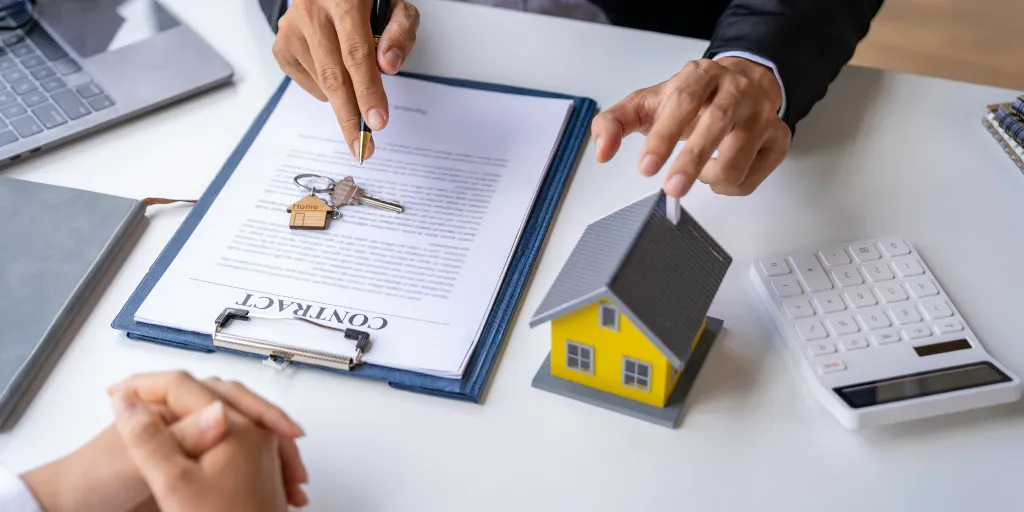When you navigate the world of real estate lease management it can sometimes feel like you’re on a roller coaster ride. With all the rules and regulations that seem to change as often as the weather, it is tricky to keep your lease agreements in line with current laws. But don’t worry; we’ve got your back! It’s crucial to stay compliant—not just to avoid legal headaches—but also to maintain a smooth relationship with your tenants.
Let’s dive into how you can ensure your real estate lease agreement are always compliant.
1. Know Your Local Rental Laws
First and foremost, it’s crucial to familiarize yourself with your local rental laws. This isn’t a one-size-fits-all scenario. Each state, and often each city, has its own unique set of statutes governing rental properties. These laws can cover a broad spectrum of issues, from security deposit limits to eviction procedures, and even maintenance responsibilities.
A thorough review of these local and state regulations is a non-negotiable step to ensure your lease agreements are compliant. Remember, these laws directly affect the terms and conditions in your lease agreement. They dictate what you can and cannot include, and when you fail to adhere to them, it can lead to significant legal troubles.
Legal jargon can be difficult to understand, in fact daunting, but don’t let that deter you. There are resources available, both online and offline, that can help simplify these laws for you. The key is to ensure that your real estate lease agreements are not only legally sound but also fair and transparent for your tenants. After all, a well-informed landlord makes for a smoother landlord-tenant relationship. Understanding local rental laws is your first line of defense against potential disputes and legal complications.
2. Screen Tenants Carefully
When you’re looking for potential tenants, screening them carefully is a must-do. Conducting a thorough background check allows insight into the tenant’s history. Has this person consistently paid their rent on time? Have they had any legal disputes with previous landlords? These are essential questions that a background check can answer.
Don’t stop at just the background check, though. Dive deeper by reviewing any references provided by the tenant. Past landlords, employers, or personal references can offer valuable insights into the tenant’s reliability and behavior. Remember, a good tenant isn’t just someone who can pay the rent. They are also someone who respects the property and maintains a good relationship with the landlord.
So take your time, do your homework, and choose your tenants wisely!
3. Set Clear Guidelines in the Lease Agreement
Once you have found your potential tenant, it’s time to draft a clear and comprehensive real estate lease agreement. This document is the foundation for your relationship with the tenant, so it’s crucial to include all necessary details. Start with the basics, like payment schedules and security deposit terms, then move on to more specific policies like pet rules or guidelines for property maintenance.
Remember to outline the procedures for termination notices as well. It’s essential to be clear about how much notice a tenant needs to give before moving out or what circumstances might lead you, as the landlord, to terminate the lease. It helps avoid any confusion or disagreements later on.
Remember, a well-drafted real estate lease agreement leaves no room for ambiguity. It clearly states what you expect from your tenants and what they can expect from you. It’s also your best tool for ensuring rental laws and regulations compliance. Spend ample time refining this document; it will make your life as a landlord much easier!
4. Specify Important Details About Repairs and Maintenance Responsibilities
Addressing repairs and maintenance responsibilities in your lease agreement is a critical step that you can’t afford to overlook. You need to specify who will handle what when it comes to keeping the property in good shape. Will the tenant take care of minor repairs, such as changing light bulbs or unclogging drains? Or, will you, as the landlord, handle all property-related issues?
To avoid confusion and potential disputes, make sure you detail this in the lease agreement. Be specific about the type of maintenance tasks the tenant is expected to perform and which ones fall under your responsibility. Also, outline the procedures for reporting repair needs. Should tenants call you directly, or is there a property manager they should contact?
Setting clear expectations about repairs and maintenance ensures the property stays well-maintained and both parties understand their responsibilities. This clarity protects your investment and fosters a better relationship with your tenants. Be thorough and precise when you outline these lease agreement details.
5. Review the Lease Agreement Regularly
For successful lease management, it is vital to regularly review and update your lease agreement. This is not a document to set and forget. Laws change, rental market trends shift, and your lease agreement needs to reflect these evolutions.
Make it a habit to revisit your lease agreement at least once a year or every time you welcome a new tenant. Look for any changes in local or state rental laws that might necessitate adjustments to your agreement. When you ignore these changes it can lead to non-compliance and result in legal complications.
Also, keep an eye on the pulse of the rental market. Do landlords in your area allow pets? Have security deposit norms changed? Adapt your lease agreement to align with these trends to make your property more appealing to potential tenants. It can give you a competitive edge.
Remember, an up-to-date and comprehensive real estate lease agreement is one of your most potent tools to safeguard your rights as a landlord. Stay informed, keep your lease agreement current, and continue to thrive.
6. Enforce Rules Fairly and Consistently
Fair and consistent enforcement of lease agreement rules is fundamental to successful property management. As the landlord, you must ensure all tenants adhere to the stipulated rules. Whether it’s about noise restrictions, parking rules, or property maintenance, each tenant should understand their obligations and face equal consequences for non-compliance. This approach maintains order and respect among tenants, protects your property, and upholds its value.
In conclusion, ensuring your lease agreements comply with current regulations is crucial to effective and legal property management. It requires a thorough understanding of the laws, regular updates to your agreements, and consistent enforcement of the rules. However, navigating this complex terrain does not have to be overwhelming. With PreludeSys’s expert lease management services, you can rest assured that your lease agreements will always be up-to-date and in line with the latest regulations. Trust PreludeSys to provide the expertise and support you need to maintain full lease agreement compliance, protecting both your business and your peace of mind.









